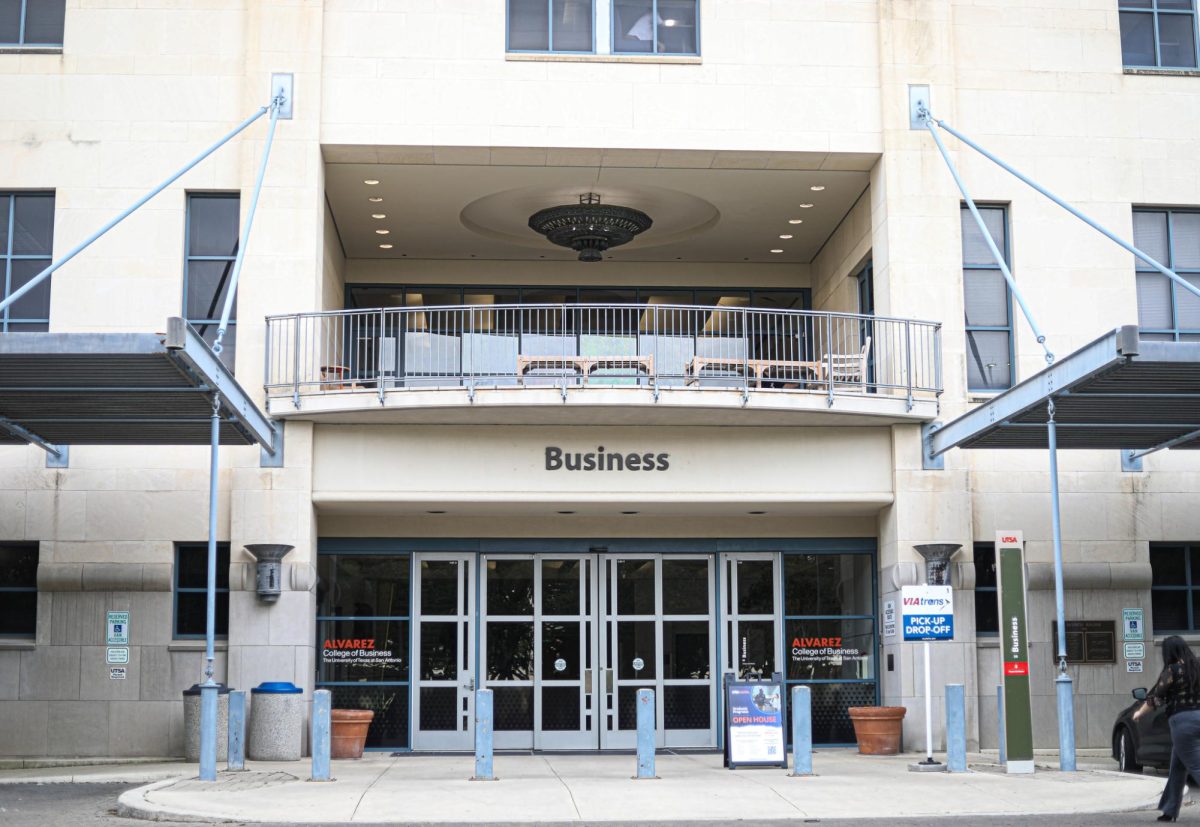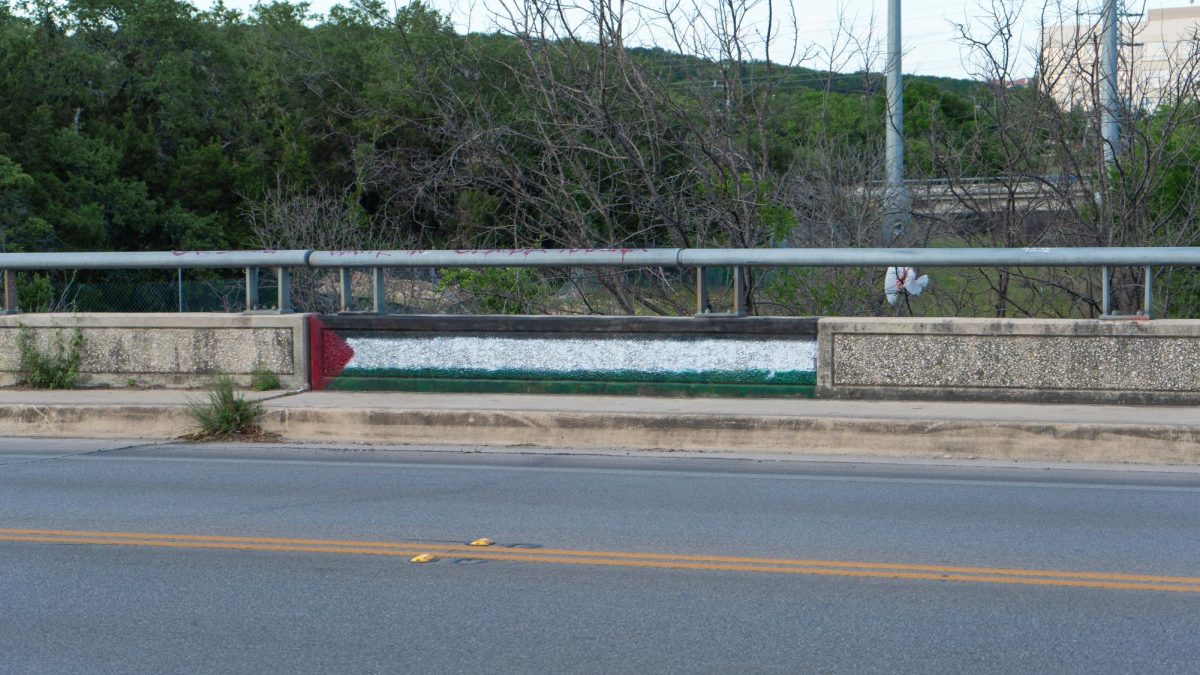_alcohol__gallery.jpg)
Robert Pistochi/ The Paisano
Wal-Mart, the largest retailer of wine and beer in Texas, filed a lawsuit against the Texas Alcoholic Beverage Commission for the right to sell distilled spirits at its Wal-Mart and Sam’s Club locations in Texas for off-premises consumption.
Currently, Section 22.16 of the Texas Alcoholic Beverage Code prohibits publicly traded corporations from acquiring a package store permit allowing for the sale of distilled spirits, while Section 22.04 states, “No person may hold or have an interest, directly or indirectly, in more than five package stores or in their business or permit.”
Filed in U.S. District Court, the lawsuit challenges the “constitutionality of certain Texas statutes under the United States Constitution.”
The lawsuit claims Wal-Mart has been “irrationally banned from competing with privately owned companies that are, unlike publicly traded corporations, allowed to obtain package store permits.”
Furthermore, the lawsuit states that even if publicly traded corporations were given the opportunity to sell distilled spirits, they would still be forbidden from owning or holding more than five package store permits.
Wal-Mart currently holds 543 wine and beer retailers off-premise, otherwise known as BQ permits. The lawsuit states that the Texas Alcoholic Beverage Code would require Wal-Mart “to abandon all of its wine and beer BQ permits before it can obtain even a single package store permit.”
The lawsuit’s final claim concludes that “in addition to being anticompetitive and unfair to consumers,” Texas laws are “protectionist provisions that unlawfully discriminate against publicly traded companies and interstate commerce, and are unconstitutional under the Equal Protection Clause, Commerce Clause and Comity Clause of the U.S. Constitution.”
San Antonio resident Bianca Chapa feels that Wal-Mart should have the right to sell distilled spirits saying, “I think they should, it’s a free country. I think that any company, given that they can provide a means for a consumer based product, should be able to supply that product.”
However, Chapa would not buy distilled liquor from the company if they sold it. “I don’t shop for my liquor there. If I am looking for a particular liquor, I would go to a big liquor store that I have frequented in the past.”
Students also seem to be divided about the potential outcome of the lawsuit. Both junior Roland Garcia and sophomore Belen Lopez agreed that they would not buy distilled spirits from Wal-Mart.
“It doesn’t feel like the right place because the supermarket is a family oriented place as opposed to a liquor store,” Garcia stated.
Senior Kyle Golla, on the contrary, sees the potential convenience in Wal-Mart selling distilled spirits. “For sure, I’d imagine it being at a cheaper price,” Golla said. “I get most of my stuff from Wal-Mart generally; if I’m already there it’s one less stop on the way home.”
“Wal-Marts in other states already sell liquor,” stated Senior Memorie Johnson. “I would buy liquor from Walmart if the prices are better than local liquor stores.”
Alhough divided, students felt that it was a necessity for any hard liquor area at a Wal-Mart to be sectioned off from the rest of the store.
Junior Andre Pickens offered a suggestion on how Wal-Mart’s potential distilled spirits section should be monitored.
“It would be convenient, but I feel like they shouldn’t because kids go in there all the time and just steal stuff,” Perkins said. “If they had a little closed off section where the hard liquor would be, I’d be for that, because then you could have an attendant on the entrance and then you cash out with the hard liquor inside there.”
Senior Faith Menogan also believes that liquor should be in a separate area of the store, and stated that if Wal-Mart was given the opportunity to sell distilled liquor, “it would have to be secure.”
Former Wal-Mart worker and senior Andrew Fernandez stated that customers tried to steal beer from the store a number of times.
“Every once in a while people would put it underneath their carts or place it in a certain way where they would hope that the cashier would forget to scan it,” said Fernandez.
“I don’t think it’s going to increase the problem of kids getting liquor. Wal-Mart has always been a family oriented company,” Fernandez continued. “They could do what Costco does and have it separated from the main part of the store and to get in and out you would have to establish ID.”
According to the lawsuit, Wal-Mart is licensed to sell distilled spirits in addition to wine and beer in 25 other states. In Texas, Wal-Mart is licensed to sell wine, beer or both in 546 stores including Wal-Mart stores, Supercenters, Neighborhood Markets and Sam’s Clubs.
Some consumers, like Fernandez, agree with Wal-Mart’s complaint that the Texas Alcoholic Beverage Code negatively impacts Texas consumers and restricts the overall convenience of purchasing distilled spirits. “I would like to pick up my eggs with my whiskey,” Fernandez said.











